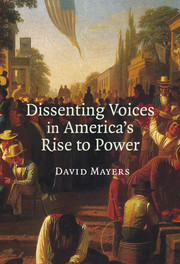6 - Russia
from Part II - Conquests
Published online by Cambridge University Press: 05 June 2012
Summary
Internal strife undid the Union thirteen years after Trist obtained his Mexican treaty. Secretary of State William Seward tried to avert disaster by drastic expedient. Had Trist known of it, even he would have blanched at Seward's impudence.
Seven slave states had left the Union by late March 1861: Alabama, Florida, Georgia, Louisiana, Mississippi, South Carolina, Texas. Their delegates, gathered in Montgomery, had declared a new nation in February. They selected Jefferson Davis to lead the Confederate States of America. Federal territory in the south meanwhile had either capitulated to secessionists or lay under siege. Fort Sumter lived under mounting pressure of isolation in bristling Charleston.
This unprecedented crisis paralyzed the federal will, Seward concluded, and overwhelmed newly inaugurated Abraham Lincoln, himself no more than a prairie bumpkin, an unlikely president. He had won the White House by a series of flukes. Their cumulative effect had prevented the best man – suited by experience, sterling character – from exercising executive command, namely Seward himself. Presentable and cultured, he had twice been elected governor of New York, twice senator. He was in his own mind the preeminent Republican with a solid record of opposition to slavery. His duty in the 1861 emergency was to take the initiative. Otherwise, he thought, events would spin out of control. The republic would split, then sink into oblivion.
Seward suggested in a memorandum to Lincoln (penned April 1, 1861) that he yield pride of place to the secretary of state.
- Type
- Chapter
- Information
- Dissenting Voices in America's Rise to Power , pp. 138 - 158Publisher: Cambridge University PressPrint publication year: 2007



